Premium Only Content
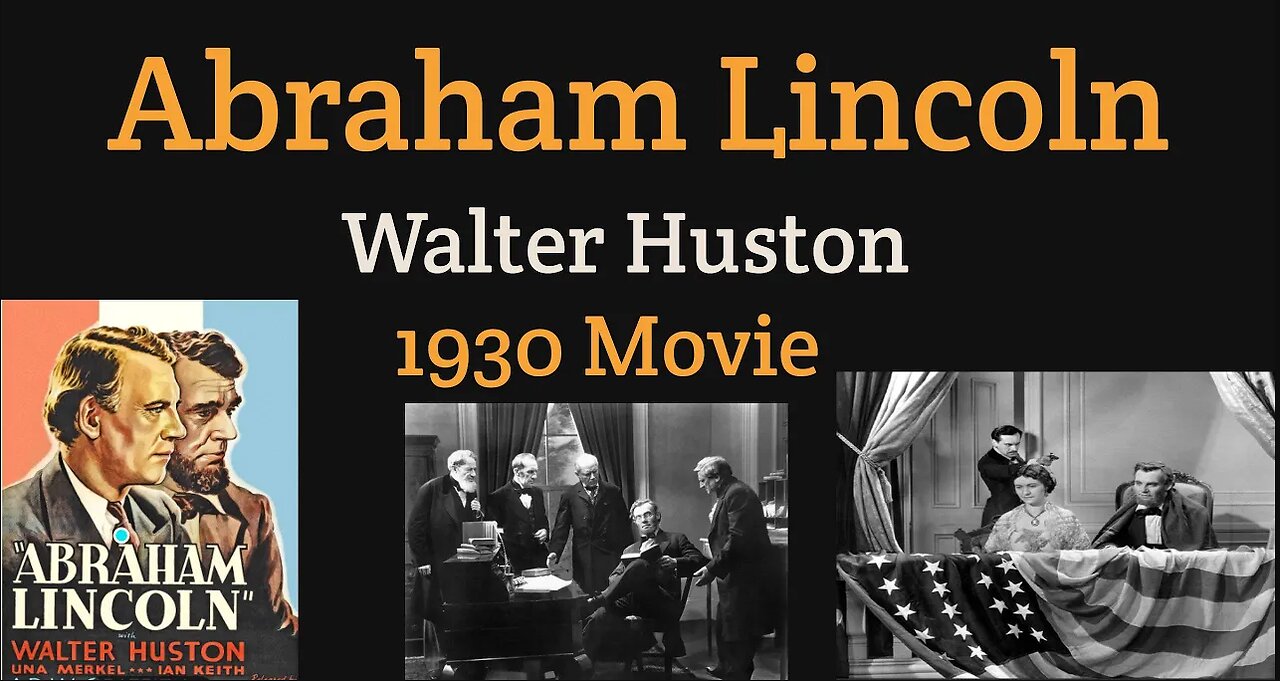
Abraham Lincoln (1930) Pre-Code Biographical film
Abraham Lincoln, also released under the title D. W. Griffith's "Abraham Lincoln", is a 1930 pre-Code American biographical film about Abraham Lincoln directed by D. W. Griffith. It stars Walter Huston as Lincoln and Una Merkel, in her second speaking role, as Ann Rutledge.
The script was co-written by Stephen Vincent Benét, author of the Civil War prose poem John Brown's Body (1928), and Gerrit Lloyd. This was the first of only two sound films made by Griffith.
Plot summary
The first act of the film covers Lincoln's early life as a storekeeper and rail-splitter in New Salem and his early romance with Ann Rutledge, and his early years as a lawyer and his courtship and marriage to Mary Todd in Springfield, Illinois. The majority of the film deals with Lincoln's presidency during the American Civil War and culminates with Lee's surrender and Lincoln's assassination at Ford's Theatre.
Cast
Walter Huston as Abraham Lincoln
Una Merkel as Ann Rutledge
Characters in the order of their appearance
W. L. Thorne as Tom Lincoln
Lucille La Verne as Mid-Wife
Helen Freeman as Nancy Hanks Lincoln
Otto Hoffman as Offut
Walter Huston as Abraham Lincoln
Edgar Deering as Armstrong
Una Merkel as Ann Rutledge
Russell Simpson as Lincoln's Employer
Charles Crockett as Sheriff
Kay Hammond as Mary Todd Lincoln
Helen Ware as Mrs. Edwards
E. Alyn Warren as Stephen A. Douglas
Jason Robards as Herndon
Gordon Thorpe as Tad Lincoln
Ian Keith as John Wilkes Booth
Cameron Prudhomme as John Hay (secretary to the president)
James Bradbury, Sr. as General Scott
Jimmie Eagle as Young Soldier
E. Alyn Warren as General Grant
Oscar Apfel as Secretary of War Stanton
Frank Campeau as General Sheridan
Hobart Bosworth as General Lee
Henry B. Walthall as Colonel Marshall
Reception
The film received positive reviews from contemporary critics. Mordaunt Hall of The New York Times called it "quite a worthy pictorial offering with a genuinely fine and inspiring performance by Walter Huston in the role of the martyred President"[3] and later put it on his year-end list of the ten best films of 1930.
Historical accuracy
The film covers some little-known aspects of Lincoln's early life, such as his romance with Ann Rutledge, his depression and feared suicidal tendencies after her death, and his unexplained breaking off of his engagement with Mary Todd. However, the film surmises that was because of unresolved feelings over Ann Rutledge, and it adds a dramatic scene in which Lincoln stands Mary up on their scheduled wedding day. In reality, Lincoln broke off the engagement but before the wedding day. He would later regret his decision, return to ask Mary's hand in marriage once again, and follow through this time, as happens in the film.
While the early scenes of Lincoln's life are remarkably accurate, many of the later scenes contain historical inaccuracies. The Lincoln-Douglas debates, in addition to the historically-accurate topic of the extension of slavery, are turned into an argument about secession. Lincoln was an underdog for the Republican Presidential nomination in 1860 although the film suggests that he was the sole nominee as a result of the Lincoln-Douglas debates.
The outbreak of the Civil War seems to be the Union firing on Charleston, South Carolina from Fort Sumter, rather than the other way around. Also, early in hostilities, General Winfield Scott is depicted as being overconfident of a quick victory and something of a buffoon, but in reality, he was one of the voices in the minority claiming the war would be long, costly, and bloody.
In the film, Lincoln receives a report from the Secret Service that some Copperheads in the North have issued threats against him. However, in reality, the Secret Service was not created until two months after Lincoln's death.
Finally, in the film's climax, Lincoln delivers a conflation of the words of the Gettysburg Address and Second Inaugural Address at Ford's Theatre on April 14, 1865, just moments before his assassination. That was Griffith's second portrayal of Lincoln's assassination, the first being in The Birth of a Nation.
-
 LIVE
LIVE
TimcastIRL
20 minutes agoTrump Just FIRED OVER 6,700 IRS Agents In PURGE, Democrats SOMEHOW Angry w/Chloe Cole | Timcast IRL
8,643 watching -
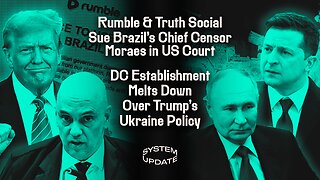 LIVE
LIVE
Glenn Greenwald
1 hour agoRumble & Truth Social Sue Brazil’s Chief Censor Moraes in US Court; DC Establishment Melts Down Over Trump's Ukraine Policy | SYSTEM UPDATE #409
3,646 watching -
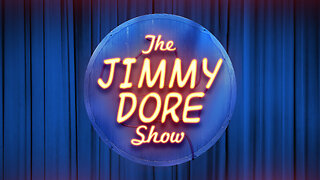 LIVE
LIVE
The Jimmy Dore Show
2 hours agoTrump Calls Zelensky A Dictator! Deborah Birx ADMITS They Lied About Vaxx! w/Col. Douglas Macgregor
20,383 watching -
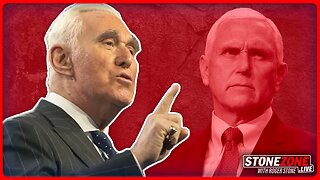 LIVE
LIVE
The StoneZONE with Roger Stone
24 minutes agoRoger Stone Destroys Mike Pence for Attacks on Trump | The StoneZONE
413 watching -
 1:33:39
1:33:39
Redacted News
4 hours agoBREAKING! Europe goes NUCLEAR against Trump over pushing for PEACE in Ukraine | Redacted
100K143 -
 UPCOMING
UPCOMING
Melonie Mac
5 hours agoGo Boom Live Ep 38!
1.15K -
 1:41:00
1:41:00
Darkhorse Podcast
6 hours agoIf Only We’d Known: The 265th Evolutionary Lens with Bret Weinstein and Heather Heying
64K28 -
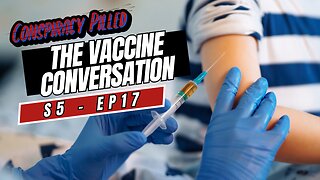 LIVE
LIVE
Conspiracy Pilled
3 days agoThe Vaccine Conversation (S5 - Ep17)
347 watching -
 11:22
11:22
Tundra Tactical
2 hours agoUSA vs Canada HOCKEY Fight: The Real PRIDE Fighting.
12K -

LFA TV
1 day agoWhy Exposing Waste and Fraud Terrifies the Beltway | TRUMPET DAILY 2.19.25 7PM
8.23K